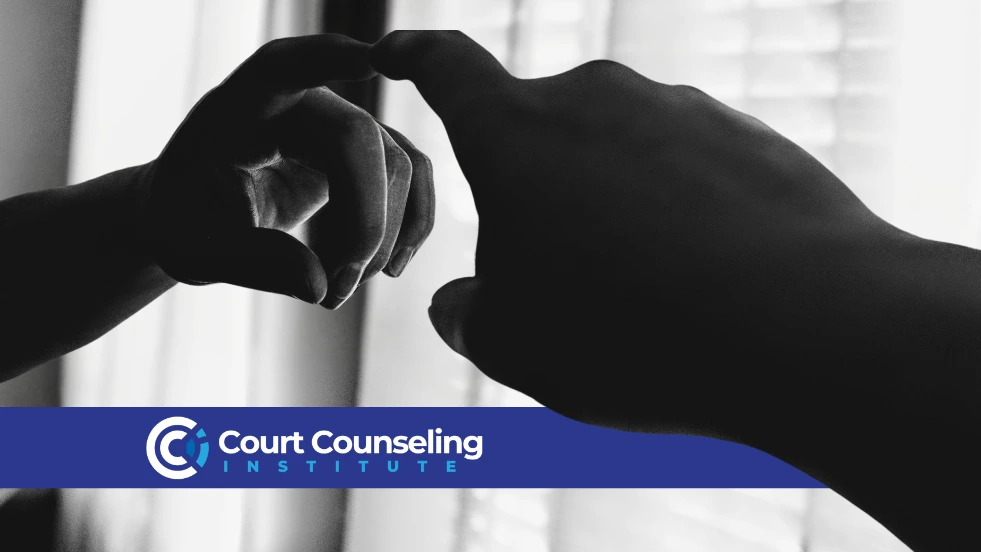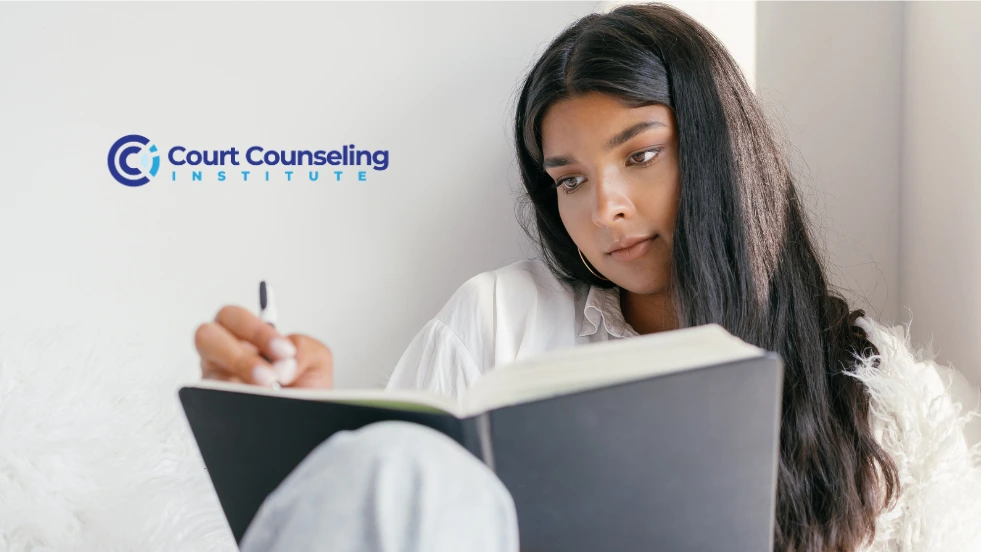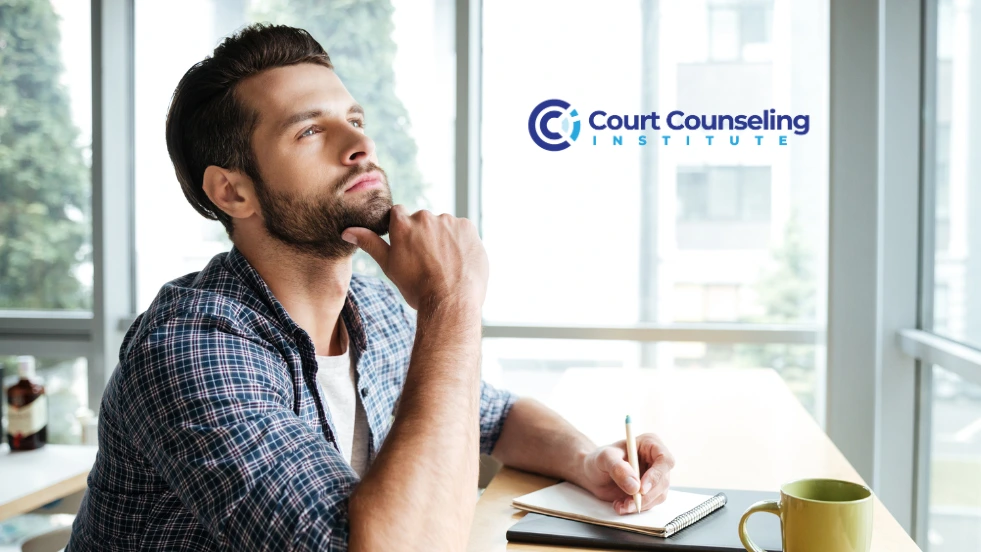
Why Self Reflection Is Key To Your Success In Court-Ordered Counsling?
Let’s be real for a second, court-mandated counseling can feel like just another requirement. You’re showing up to the sessions, nodding at the right times, maybe even saying what you think you’re supposed to say. But underneath all that, have you stopped to self reflect on how far you’ve come? Whether you’re just starting your counseling journey or you’re a few sessions deep, pausing to look inward is one of the most powerful things you can do. Self reflection helps you connect the dots between where you were, where you are now, and where you want to go next. In this post, we’ll talk about what self reflection means, how to actually do it, and why it matters so much, especially when you’re going through court-ordered counseling. We’ll also talk about what self reflection is and share some simple ways to make it easier.
What Is Self Reflection And Why Should You Care?
Self reflection is not just sitting around reviewing everything you said or did, replaying conversations in your head, or beating yourself up for past mistakes. That’s overthinking, and it’s often unhelpful. True self reflection is something different. It’s a deliberate, thoughtful pause where you slow down and take an honest look at yourself, your thoughts, feelings, choices, and behaviours, not to judge yourself, but to better understand who you are and why you do what you do. It’s about creating a space where growth can happen. The Court Counseling Institute recognizes that true transformation begins with honest self-awareness, which fosters resilience, accountability, and healthier decision-making.
What Is Self Reflection Look Like?
You don’t have to journal for hours or meditate on a mountaintop. Self reflection can be small, simple moments of awareness, often happening when you least expect them. Here are some examples:
-
- Noticing you responded to a stressful situation with more calm than before.
- Realizing you didn’t get as defensive in a conversation where you used to feel attacked.
- Recognizing how your thoughts have shifted, maybe you’re more compassionate to yourself now, or more open-minded than you used to be.
- Ask yourself reflective questions like:
- “Why did I react that way?”
- “What did I need at that moment?”
- “What would I do differently next time?”
These moments may seem small, but they’re not meaningless. They’re signs of emotional maturity and inner growth. And the more you practice self reflection, the more natural it becomes.
Why Is Self Reflection Important?
We’re all busy. Life moves fast. But without moments of reflection, we can get stuck in automatic mode, reacting instead of responding, repeating old patterns, and missing out on opportunities to grow or change. Self reflection gives you the chance to break that cycle.
Whether you’re in counseling, navigating a personal challenge, or simply trying to become more self-aware, self reflection helps you:
-
-
Make sense of your experiences
-
Identify what’s working and what isn’t
-
Understand your emotional triggers
-
Recognize patterns in your relationships and behaviour
-
Learn from mistakes instead of repeating them
-
And if you’re in court-mandated counseling or therapy, self reflection isn’t just helpful, it’s essential. It shows that you’re not just “going through the motions,” but that you’re engaging with the process and learning something about yourself. That insight can be the difference between real change and staying stuck. The Court Counseling Institute is here to support you every step of the way, helping you develop meaningful self-reflection and achieve lasting growth.

The Real Benefits Of Self Reflection During Counseling
Self-reflection is a powerful tool in counseling that helps individuals gain insight into their thoughts, feelings, and behaviours. Understanding these benefits of self reflection can make a big difference in how effective your counseling experience is, leading to deeper personal growth and lasting change.
1. You’ll See Your Growth
When you pause to reflect, you start noticing things you might’ve missed, like handling a tough situation better or staying calm when you used to react. These small wins show that real progress is happening, even if it’s not dramatic. Over time, seeing these changes can build your confidence and keep you motivated to keep going.
2. It Helps You Prepare for Court (If Needed)
If the court is part of your process, being able to speak to your growth matters. Reflection helps you move beyond “I went to the sessions” and into real examples of how you’ve changed. That kind of insight shows personal responsibility and growth, which can make a strong impact in legal settings.
3. You’ll Get Better at Handling Tough Emotions
Reflecting helps you recognize what sets you off and how you usually react. That awareness gives you more control over your emotions, so you can respond instead of exploding. Over time, this makes conflict easier to manage and helps you feel more in charge of your behaviour.
4. You’ll Be Building Skills for Life
Self reflection isn’t just for meeting requirements, it’s something you can carry with you. It helps you check in with yourself, understand your choices, and stay on track. These are tools that support long-term growth, not just short-term goals.
The Court Counseling Institute is here to guide you through this process, helping you develop meaningful self-reflection skills that support lasting change.
How To Self Reflect Without Overcomplicating It?
If you’ve never done this before, the idea of “reflecting” might feel kind of vague. But don’t worry. You don’t need to be a philosopher or a poet. Here’s how to self reflect in a simple, doable way.
Try Self Reflective Journaling
After each personal growth therapy session, take five minutes to jot down what stood out. This simple habit supports deeper personal growth, reveals emotional patterns, and encourages lasting development through reflection. Ask yourself questions like, What stood out to me today? How did I feel during that discussion? Is there something I want to work on between now and the next session? Taking time to reflect helps you connect the dots between your thoughts, feelings, and actions, making each session more meaningful and effective.
You don’t need fancy words, just honesty. In personal growth therapy or personal growth counseling, simple reflections can reveal patterns, show the effects of childhood experiences on personal growth, and inspire real personal growth and development.
Use Your Phone as a Tool
Not a fan of writing things down? That’s okay. Your phone can be a powerful tool for reflection; just open the voice recorder and start talking. Pretend you’re talking to a friend, or even your future self. Say what’s been on your mind, how you’ve been feeling, what’s been hard, and what you’re proud of. Speaking your thoughts out loud can help you process emotions in a real, unfiltered way, and sometimes, you’ll discover things you didn’t even realize you were carrying. Plus, having a record of these moments means you can go back later and hear your progress.
Ask Yourself the Hard Questions
Here are a few questions to guide your personal growth journey. These simple inquiries, often used in personal growth therapy and counseling, help uncover patterns shaped by past experiences and support lasting development. Ask yourself: What’s something I did this week that I’m proud of? What am I still struggling with? What patterns do I notice coming up over and over? Reflecting on these questions builds self-awareness, reveals emotional habits, and helps you track progress over time. With consistency, this practice can lead to meaningful insight and long-term personal growth.
Make It Part of a Routine
Reflection doesn’t have to be a big production. You can do it during a walk, while brushing your teeth, or before bed. Simple daily check-ins support personal growth, especially in personal growth therapy and personal growth counseling, helping you understand the effects of childhood experiences on personal growth and inspire lasting personal growth and development.
Growth Happens in the Quiet Moments
Growth doesn’t always come in big, life-changing moments. More often, it’s quiet, subtle, and slow. It happens in the small choices you make each day, when you pause before reacting, reflect on your emotions, or simply take a moment to breathe and respond with intention. These moments might seem minor, but they’re powerful. They build emotional intelligence, deepen your self-awareness, and help you move through life more consciously. Just because growth isn’t dramatic doesn’t mean it isn’t real. It’s often in the quietest moments that the most meaningful change takes place.
The Court Counseling Institute can help guide you through these reflection practices and support your journey toward lasting personal growth and healing.

When To Reflect For Deeper Growth In Counseling
Reflection is helpful throughout your counseling journey, not just when you’re finishing up. Here are a few key points to check in with yourself:
-
-
At the Start: When beginning personal growth therapy, take note of your fears or doubts. Naming them builds self-awareness and sets the tone for honest personal growth, counseling, and long-term personal growth and development.
-
-
-
Halfway Through: Check in during your journey. What feels different? Even small wins in personal growth counseling show real progress. These shifts are often early personal growth examples rooted in your consistent self-work and reflection.
-
Before a Court Update: Use your reflections from personal growth therapy to clearly show your progress. Be honest about challenges and changes, including how the effects of childhood experiences on personal growth may have surfaced and shifted.
-
After You Finish: Once your personal growth counseling program ends, reflect on how you’ve changed. A final journal or voice memo can highlight lasting personal growth examples and guide your ongoing personal growth and development journey.
-
The Court Counseling Institute is here to support you at every step of this process, helping you reflect meaningfully and demonstrate your growth effectively.
Learn How to Self-Reflect with Court Counseling Institute
At Court Counseling Institute, we believe counseling is more than just fulfilling a requirement, it’s about real personal growth. Whether you’re navigating court mandates or seeking positive change on your own terms, we’re here to support your journey. With over two decades of experience, we provide programs designed to fit your unique needs and schedule. Our compassionate team understands both the legal system and the human side of change. Together, we’ll help you build a healthier, stronger version of yourself, step by step.
Court Counseling Institute Offers:
-
-
Online, court-approved counseling and therapy programs that fit your schedule
-
Self-reflection tools to help you track your growth and stay grounded
-
Guidance from experienced professionals who understand the legal system and personal development
-
At every stage of your journey, Court Counseling Institute is committed to your success. We focus on personalized support, so you feel empowered, not just compliant. Our goal is to help you develop lasting skills and insights that extend beyond court requirements. By blending professional expertise with genuine care, we create an environment where real transformation happens. Start your journey with us and experience counseling that truly makes a difference.
Need Counseling For Self-Awareness And Healing?
Contact us to learn how we can help you grow and find the right tools to support your journey, both in and beyond counseling. Start today, and let’s move forward together.


